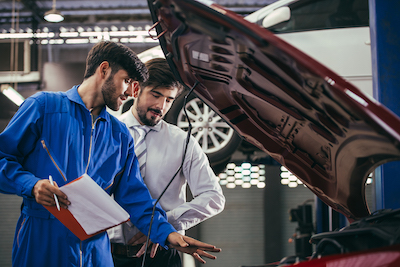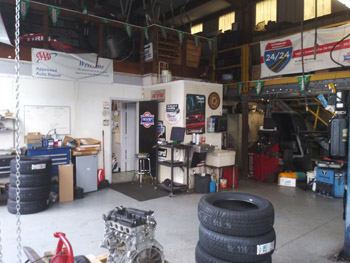All Categories
Featured
Brakes are arguably the most important security attribute of any vehicle. Without reliable brakes, even the most effective automobile can become a threat on the road.
- The Value of Routine Brake Inspections. Brakes undertake constant deterioration with every use, whether you're driving at broadband on the freeway or travelling with city streets. Over time, brake pads, rotors, and various other components use down, which can affect stopping performance. Without routine examinations, you might not see the steady decline in efficiency till it's also late.
Routine brake evaluations enable you to catch problems early, guaranteeing that your brakes continue to be receptive, reputable, and risk-free. Prompt inspections can likewise conserve you cash by addressing minor concerns prior to they end up being expensive repair work.
- Usual Indications That Your Brakes Required Interest. While regular brake examinations are necessary, there are some indication you can watch out for to know when it's time to arrange a check-up:
Squealing or Grinding Appears: Piercing squeaks or grinding noises when applying the brakes are commonly indicators that your brake pads are worn and need replacement. Resonance or Pulsation: If you really feel vibrations in the steering wheel or the brake pedal, it might show deformed blades, which may require resurfacing or replacing. Soft or Mushy Brake Pedal: If the brake pedal feels uncommonly soft or squishy, there might be air in the brake lines or a problem with the master cylinder. Pulling away: If your car pulls away while braking, this could be triggered by unequal brake pad wear or an issue with the brake liquid. Enhanced Quiting Range: If it takes longer to stop than common, it may suggest that the brake pads are put on, the liquid is low, or the rotors are harmed. If you notice any one of these signs and symptoms, it's finest to have your brakes inspected right away.

- Trick Components Checked Throughout Brake Inspections. Throughout a brake assessment, a professional will check numerous vital parts of the braking system to make sure every little thing is functioning properly. Below are the crucial elements entailed:
Brake Pads: One of the most usual factor for bad stopping efficiency is worn-out brake pads. Checking the density of the pads is a top priority during every examination. Brake Rotors: Rotors must be smooth and cost-free of grooves or cracks. Any type of substantial damage to the rotors might result in jeopardized stopping efficiency and uneven pad wear. Brake Fluid: Low or polluted brake fluid can impair stopping efficiency. The specialist will check the fluid degrees and high quality and change it if necessary. Brake Lines and Tubes: Brake lines must be totally free of leakages or cracks. Any kind of damage to the lines can cause loss of brake fluid, resulting in brake failure. Brake Calipers: The calipers use stress to the brake pads. They need to be inspected for signs of wear or leakages to ensure they are working appropriately. On a regular basis checking these elements assists keep your brake system in peak condition, permitting you to quit your vehicle securely and efficiently.
- Exactly how Commonly Should You Have Your Brakes Inspected? The basic suggestion is to have your brakes evaluated a minimum of as soon as a year or every 12,000 miles, depending upon your driving habits. Certain driving problems may need more regular evaluations:
Hefty Website Traffic: If you commonly drive in stop-and-go traffic, your brake pads will put on down quicker. Hill Driving: Driving on high roadways calls for more regular stopping, which can cause your brakes to put on more swiftly. Towing or Hauling Heavy Loads: If you frequently carry hefty loads, your brakes will experience more stress and anxiety and need more frequent inspections. If you notice any one of the indication discussed previously, don't await the next scheduled evaluation-- have your brakes checked promptly.
- The Effects of Ignoring Brake Inspections. Neglecting regular brake examinations can cause significant consequences. A failing brake system can cause lowered stopping power, which increases your danger of mishaps. Ignoring brake maintenance can also cause much more costly fixings. If you delay changing used brake pads, the damages might prolong to the rotors, leading to the demand for rotor substitute, which is a much extra expensive fixing.
In the worst instance, driving with damaged brakes can cause finish brake failing, placing you and other drivers in danger. Normal brake assessments are a little financial investment that can conserve your life and stop expensive repair services.
- Final Thought: Keep Safe with Routine Brake Inspections. Brakes are not something you wish to take possibilities with. A reliable stopping system is necessary for secure driving, and routine brake evaluations are a straightforward method to guarantee that your automobile stops when you need it most. By remaining on top of brake upkeep, expecting cautioning indications, and having your brakes evaluated at the recommended intervals, you'll safeguard both your vehicle and your safety and security.
Do not wait till your brakes start to fail-- timetable regular brake assessments and maintain your lorry in optimal problem for many years to find.
Latest Posts
Explore Limited-Time Auto Repair Deals in Chicago at Montclare Auto Repair
Recognizing When Your Car Needs Expert Auto Repair at Montclare Auto Repair
Specialist Industrial Roofing Solutions in North Platte, Nebraska
More
Latest Posts
Explore Limited-Time Auto Repair Deals in Chicago at Montclare Auto Repair
Recognizing When Your Car Needs Expert Auto Repair at Montclare Auto Repair
Specialist Industrial Roofing Solutions in North Platte, Nebraska
